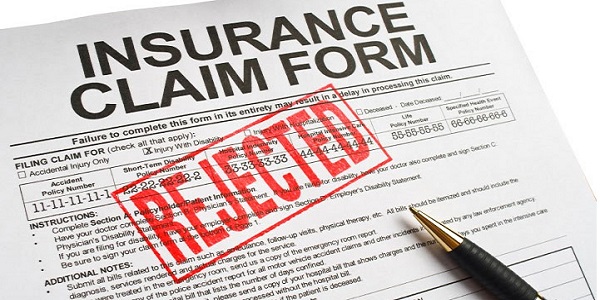
Stephen Lokonyo,Managing Director, First Assurance Kenya Ltd
- Why your insurer may not be at fault for rejecting a claim;
By Mr.Stephen Lokonyo;
A few weeks ago, a story was published in one of the local dailies about a patient who caused a scene at a medical facility, for being told to make out of pocket payments for treatment, even though he had a valid medical cover.
 The patient castigated the insurer for failing to honour their end of the bargain, however, it was later established that the policy which the patient’s employer holds had listed the condition as an exclusion.
The patient castigated the insurer for failing to honour their end of the bargain, however, it was later established that the policy which the patient’s employer holds had listed the condition as an exclusion.
Having worked in the insurance industry for years, I have witnessed such misunderstandings arise between insurance providers and policyholders time and again, whenever an illness, damage or loss occurs.
 While there are some rare cases where insurance companies have illegally failed to honour claims, in many of the instances where insurers are castigated for not honouring claims, they are normally not at fault.
While there are some rare cases where insurance companies have illegally failed to honour claims, in many of the instances where insurers are castigated for not honouring claims, they are normally not at fault.
For example, if at the time of illness an insurance cover has expired/ suspended due to non-payment of premiums or failure to renew the policy, insurance providers may not be able to cover the medical expenses at the hospital.
 If the insurer discovers that at the time of applying for a cover, the policy holder intentionally provided false information or misrepresented material facts, they may reject a claim or possibly cancel the policy, because the information could have influenced their initial assessment of risk and decision to offer coverage.
If the insurer discovers that at the time of applying for a cover, the policy holder intentionally provided false information or misrepresented material facts, they may reject a claim or possibly cancel the policy, because the information could have influenced their initial assessment of risk and decision to offer coverage.
Disclosing important information such as pre-existing illnesses or a risky job while applying for a medical policy cover, is key to avoiding any misunderstandings during the claims process.
In the event of loss or damage, it is also always important for policy holders to provide underwriters with the required documents, to enable them to process their claims with ease.
 Whether that be police reports or repair bills, incomplete or incorrect documentation, missing forms, insufficient evidence of the loss, or errors in the submitted documents, may result in claims being rejected.
Whether that be police reports or repair bills, incomplete or incorrect documentation, missing forms, insufficient evidence of the loss, or errors in the submitted documents, may result in claims being rejected.
For car or home insurance, many policy covers clearly stipulate that policy holders should not do repairs to damaged property before the insurance provider inspects the level of damage.
If the policy holder does repairs or service without the insurance provider’s authorization or consent, their claim may be rejected due to a violation of terms of the cover.
 In some instances, insurance providers may reject claims if the loss or damage has been caused by acts of God such as floods, earthquakes, or acts of war or pre-existing health conditions.
In some instances, insurance providers may reject claims if the loss or damage has been caused by acts of God such as floods, earthquakes, or acts of war or pre-existing health conditions.
Most insurers will notify policy holders about this in the exclusions segments, therefore it is important for policy holders to familiarize themselves with this section, to avoid any misunderstandings.
 Insurance policies often have specific timeframes within which claims must be submitted.
Insurance policies often have specific timeframes within which claims must be submitted.
If a claim is filed after this deadline, insurers may not accept it. Familiarizing oneself with this timing, is therefore crucial.
The Author is the Managing Director, First Assurance Kenya Ltd





